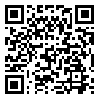Volume 12 -
IJMEHM 2019, 12 - : 597-605 |
Back to browse issues page
Download citation:
BibTeX | RIS | EndNote | Medlars | ProCite | Reference Manager | RefWorks
Send citation to:



BibTeX | RIS | EndNote | Medlars | ProCite | Reference Manager | RefWorks
Send citation to:
Aliakbari Babookani E, Amirhoseiny A. Jurisprudential and Ethical Analysis of the Effects of Post-Mortem Fertility. IJMEHM 2019; 12 :597-605
URL: http://ijme.tums.ac.ir/article-1-5998-en.html
URL: http://ijme.tums.ac.ir/article-1-5998-en.html
1- Assistant Professor of Jurisprudence and Law at Ahl al-Bayt School of Theology, Isfahan University, Isfahan, Iran
2- PhD Student of Private Law, Faculty of Law, Shahid Beheshti University, Tehran, Iran
2- PhD Student of Private Law, Faculty of Law, Shahid Beheshti University, Tehran, Iran
Abstract: (2452 Views)
One of the issues that today is considered in the moral system and jurisprudence of Imamiyah is the issue of fertility, it has considered the issue of postnatal fertility, which, if it can be considered legitimate, will have many effects. This is considered the subject of dispute between jurists and ethics scholars. In this regard, by examining the existing evidence and considering the ethical approach to the subject, this subject can be considered legitimate and, therefore, this study will examine its effects. However, the aspects of this method have not ambiguity in terms of medical sciences, but from a moral and jurisprudential point of view, there are complexities and ambiguities that require adequate accountability according to the current requirements of human societies. Therefore, this subject is considered to be a useful category as well. Naturally, since science is responsible for maintaining public order and organizing private relationships, scientific processing seems to be necessary. In this research, the concept of good legal and legal jurisprudence approach to post-death reproductive effects such as ownership of gametes based on the element of consent (explicit or implicit), custody (based on family solidarity and child abuse) and will (declaration of consent and the will of the gamet frozen by the gamet player) will be dealt with.
Type of Study: commentary |
Subject:
Medical Ethics
Received: 2018/04/5 | Accepted: 2019/09/4 | Published: 2019/03/15
Received: 2018/04/5 | Accepted: 2019/09/4 | Published: 2019/03/15
| Rights and permissions | |
 |
This work is licensed under a Creative Commons Attribution-NonCommercial 4.0 International License. |





